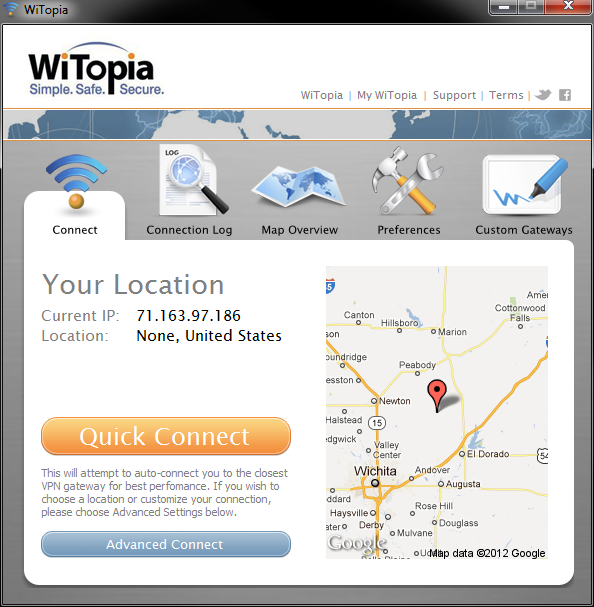We’ve all heard of a Virtual Private Network – or VPN for short. Anyone who’s been on the internet long enough has probably stumbled across VPN programs and sites and such, yet it’s rare to see someone actually use it. Well, we’re here to tell you what a VPN really is, and why you should have one:
First of all, a VPN allows you to connect to the internet via a server run by a VPN provider. All the data you send and receive to and from your device to the internet will have to travel through this VPN server. The VPN server will then securely encrypt the data you send to the internet before giving it to the site you’re accessing.

Source: VPN Monitor EU
As a result, a VPN:
-Is more secure, allowing greater privacy by hiding your internet activity (and even your IP address itself) from your Internet Service Provider (ISP) and the government.
-Allows you to get around your school, work, network, or government’s website censorship.
-Lets you fake your location to allow you to access websites and services that deny you based on your actual geographic location.
-Protects you against black hat hackers when using public WiFi hotspots
-Allows you to download peer-to-peer (P2P) safely.
Of course, VPNs aren’t perfect. Good VPNs cost money (usually via a monthly subscription), and they will always slow down your internet connection, since encrypting your data before sending it elsewhere takes some time. However, it’s probably well worth these consequences, rather than risking having your data stolen by unwanted users. Now the question is, where do you start? Which VPN services are the best to go with?
In no particular order, here’s a brief and simple list of the 5 best and most secure VPNs out there:
1) Private Internet Access

Source: CPU Report
Located in the US, this VPN has exit servers in the US, Canada, the UK, Switzerland, Romania, and the Netherlands. It keeps no logs of your activity except for payment information (i.e. receipts and proof of online purchase), uses shared IPs, and keeps your data private and secure. Prices go from $7/mo to $40/yr depending on the kind of plan you want.
2) proXPN

Source: TheGeekPost
Also located in the US, this VPN has exit servers in the US, The Netherlands, Singapore, and the UK. This VPN keeps the bare minimum logs of your information, namely email address, payment information (premium only), bandwidth usage, connection duration, and login/logout times, and keeps those logs for a maximum of 14 days before discarding them, and keeps these logs private. While it has a free plan, it’s very limited. Premium plans start at around $10
3) TorVPN

Source: PC Magazine
Located and having an exit server in Hungary, this VPN doesn’t log any of your info except bandwidth usage and payment details. They are also very committed to your privacy, going as far as saying they won’t surrender their data without a Hungarian court order. Prices depend on your data usage, ranging from Free (1GB per month) to $38 (100GB per month)
4) TorGuard

Source: PC Magazine
Located within Panama with exit servers in Panama, The Netherlands, Romania, and Ukraine, this service is wholeheartedly supportive of your need for privacy, purging their logs daily, only keeping payment and registration information. Prices range from $6 to $10 per month depending on whether you’re a downloader, a privacy advocate, or both.
5) WiTopia

Source: WiTopia
Located within the US, with exit servers in 10 US cities, and several other countries within Latin and South America, Asia, Australia, Europe, Africa, and the Middle East, this VPN gives you the most options in terms of pseudo-geographic locations to choose from. Not logging any data involving individual user and purging the logs that are kept weekly, only saving registration information and payment details, this seems like the best option. However, it is very, very expensive, with prices ranging from $50/yr to $70/yr depending on the level of encryption and protocols you need.
Article Sources:












